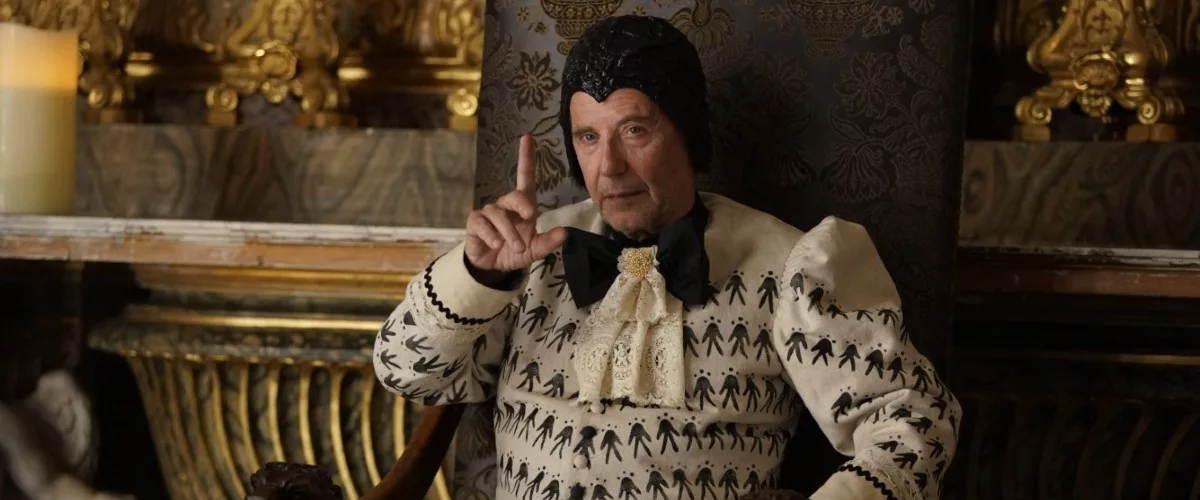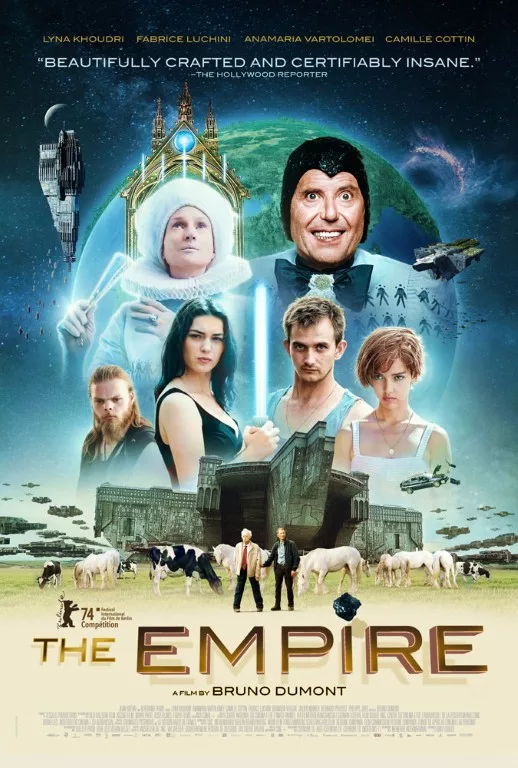American cinema has long concerned itself in the fight between good and evil: black hats versus white hats, the allies versus Nazis and the Force against the Republic. Popular Hollywood cinema has never been the refuge of nuance; shades of grey only occasionally invoked by criminals with hearts of gold. The world can be split into two halves, the goodies and the baddies, and the audience does not doubt which side they’re meant to align themselves with. This black and white vision of the world is probably part and parcel to the American imagination of itself; a new world forged by revolution and freedom, where goodness and success are synonymous.
The same can’t be said of French pop culture, which, long before the invention of cinema, has leaned into an understanding of a world rife with inequality and unfairness. Before “The Arrival of a Train at La Ciotat Station” in 1895, blockbuster novelists like Victor Hugo, Émile Zola, and Honoré de Balzac offered their readers stories of hardship; inequality was rife, corruption rampant, and the question of moral goodness ambiguous. The French cinema built on these ideas with the greatest and most popular French films deeply indebted to this early social consciousness tainted with disillusionment. Where American cinema offers hope, French cinema has long offered uncertainty. Of course, whether these competing visions for the world correspond with reality is an entirely different conversation.
Neither of these interpretations of reality are all-encompassing, dealing with their own clichés and reliance on artifice. French filmmaker Bruno Dumont has long been concerned with the cinema’s ability to forge reality. His early works, movies like “La vie de Jésus” and “L’humanité”, deal with stark uncompromising realism, at least on the surface. Preferring wide and long shots of landscapes, using non-actors, and presenting uncompromised violence, his approach has an uncomfortable naturalism. Even among other 1990s French filmmakers associated with the growing trend of French Extremism, like Philippe Grandrieux and Gaspar Noé, Dumont’s approach largely dispelled with expressionism and style. If anything, his stylistic approach often could be understood as disruptive, as it engaged in techniques that challenged the diegesis and immersion of the film itself.
Though often dealing with similar themes present in this early work, such as alienation, sacrifice, and corporeality, for the past decade since the release of “Li’l Quinquin,” it feels as though Dumont’s style has shifted drastically. Instead of breaking away from artifice, it feels as though he’s embraced it. In a tremendous clash of tonalities and values, he’s embraced many of the stylistic markers of popular American cinema while continuing to tell offbeat stories that deal with the darkest elements of the human spirit.
None of his recent films are as strange and bewildering as “The Empire,” a science-fiction epic, where the action is split between a galactic void and the Opal coast in Northern France. After the birth of a baby, referred to as “The Wain,” two warring tribes of extraterrestrials battle good and evil, with the fate of humanity resting in the balance. Brightly lit, the landscapes of the coastal village balance serene pastoral beauty with an invasion of junk; the serene environment is beset by garbage and plastic hoarding. The village itself contrasts with the galactic world, which borrows from imperial palaces of human civilization, overlooking an inky void. Though the aliens prefer to take human shape, we occasionally see their true forms: floating, crackling oil spills and beams of blue light.
Featuring a cast of mostly non-actors playing their roles with earnest intensity, the film leans on a lightly comic tone, and the self-serious intensity of Dumont’s earlier work gives way to silliness. In many ways, despite the unserious framing, few of his films have encompassed such a broad view of humanity as the aliens pontificate throughout on the value or redeemability of our species writ large. The pleasures and temptations of the human body, new and exciting for the aliens, draw us back into his earlier work. While much of the film feels like a riff on American blockbuster cinema like “Star Wars”, the movie also features scenes of sexuality and violence that inspire a tonal whiplash. Conceptually, the contrast between our expectations of the family-friendly values of American science-fiction blockbusters and the extreme physicality of Dumont’s oeuvre exposes the failure of popular cinema to encompass the totality of the human experience.
The overall experience of “The Empire” is one that is consistently surprising and rarely dull. That being said, it’s not necessarily successful as a comedy. Unfortunately, as far as clichés go, the French idea of humor remains optimistically elusive and occasionally grating to international audiences (and this is coming from a French speaker). The disruptive techniques also mean that full immersion remains difficult, making the experience of the film more interesting in retrospect than it often is in practice. While “The Empire” has a sense of fun and curiosity, it’s not exactly pleasurable, keeping the audience at arm’s length.
Working with the toolbox of popular American cinema to explore themes dear to the French cinematic canon, as well as his own, Dumont creates a singular cinematic experience. Despite the framing of good versus evil, the film becomes a treatise on human life, not just our relationship but also our environment. “The Empire” challenges our experience of the world beyond just the physical as it engages with the entertainment we consume and how it shapes our values.




















